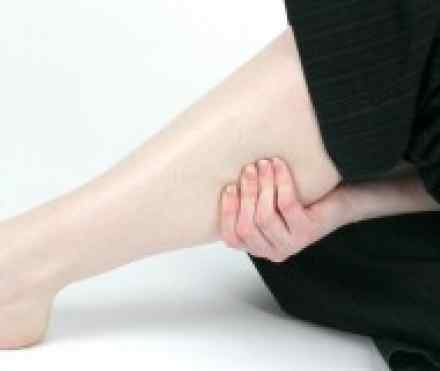
What is it?
A muscle cramp is a sudden and involuntary contraction of one or more of your muscles. Muscle cramps can result in intense pain and leave you temporarily unable to use the affected muscles.
Common causes of muscle cramps include overuse and dehydration during physical activity in warm weather. Some medications and certain medical conditions also may cause muscle cramps.
You can usually treat muscle cramps at home with self-care measures.
Symptoms
Signs and symptoms of a muscle cramp include:
- Sudden and sharp muscle pain (spasm, contraction), often in your legs
- A hard lump of muscle tissue that you can feel or is visible beneath your skin
Causes
Overuse of a muscle, dehydration, muscle strain or simply holding a position for a prolonged period of time may result in a muscle cramp. Athletes who become fatigued and dehydrated while participating in warm-weather sports frequently develop muscle cramps. In many cases, however, the exact cause of a muscle cramp isn't identified.
Writer's cramp affects the thumb and first two fingers of your writing hand and results from using the same muscles for long periods. At home, you can develop muscle cramps in your hand or arm after spending long hours gripping a paintbrush or using a garden tool. A common type of muscle cramp — nocturnal cramps — occurs in your calf muscles or toes during sleep.
Muscle cramps in your legs can also result from:
- Inadequate blood supply. Narrowing of the arteries that deliver blood to your legs (arteriosclerosis of the extremities) can produce cramp-like pain in your legs and feet while you're exercising. These cramps go away soon after you stop exercising and stand still.
- Nerve compression. Compression of nerves in your spine (lumbar stenosis) also can produce cramp-like pain in your legs. The pain usually worsens the longer you walk. Walking in a slightly flexed position — such as you would employ when pushing a shopping cart ahead of you — may improve your symptoms.
- Mineral depletion. Too little potassium, calcium or magnesium in your diet can contribute to leg cramps. Some diuretic medications prescribed for high blood pressure cause loss of potassium.
Muscle cramps are also part of certain conditions such as nerve, kidney, thyroid or hormone disorders, diabetes, hypoglycemia and anaemia.
References
http://www.medicinenet.com/muscle_cramps/article.htm
http://www.nhs.uk/conditions/legcrampsunknowncause/pages/introduction.aspx
http://www.mayoclinic.org/diseases-conditions/muscle-cramp/home/ovc-20186047

